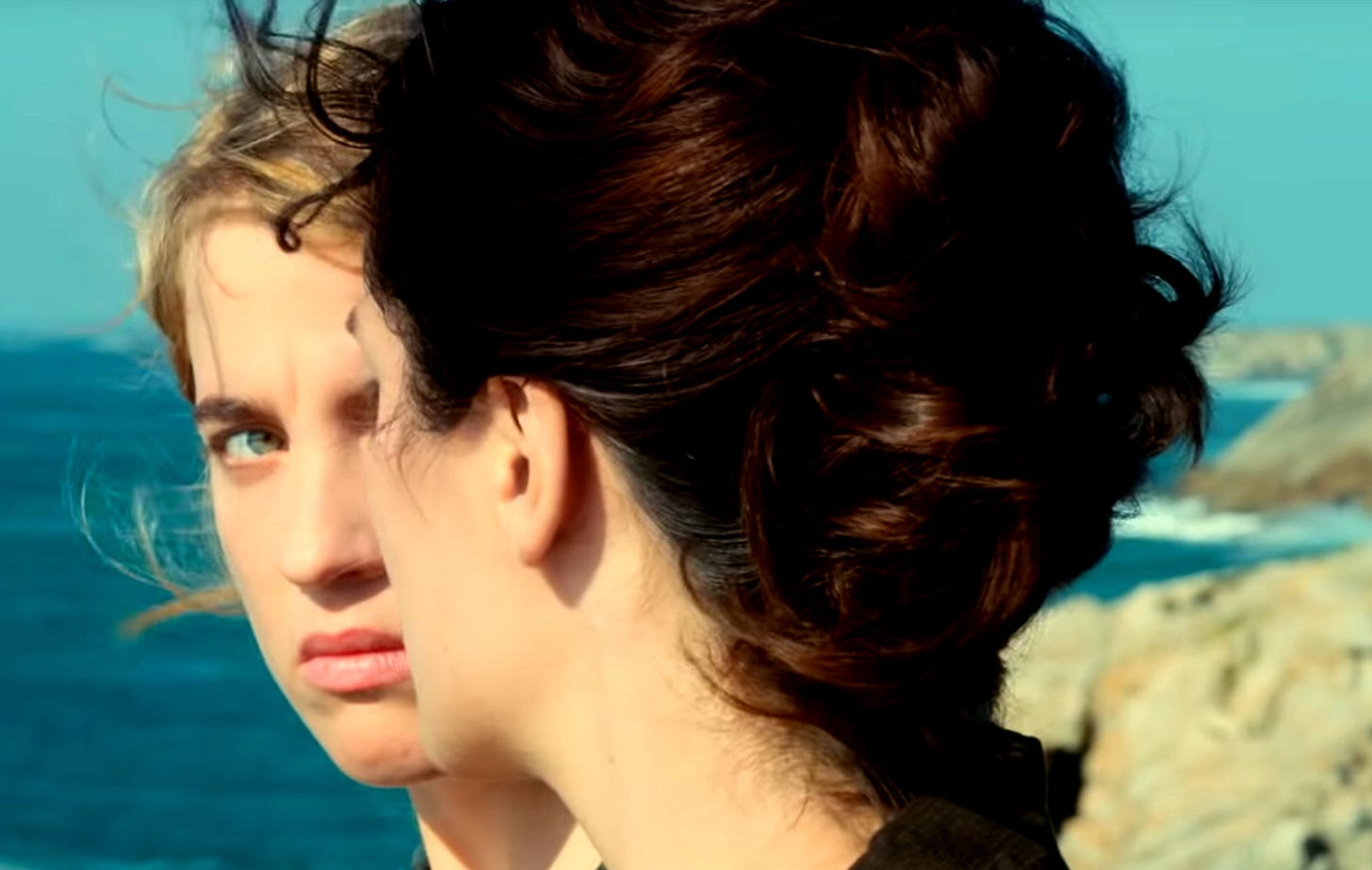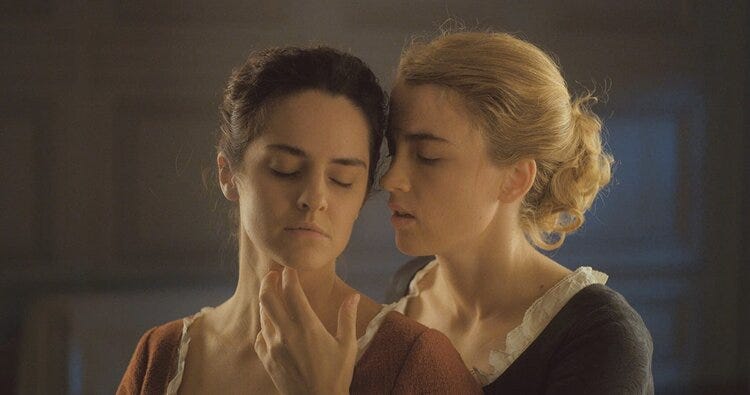portrait de la jeune fille en feu (portrait of a lady on fire)
Film, 2019
Written and Directed: Céline Sciamma
This is, with no glimmer of competition, my favorite queer film of all time.
It is deeply unusual to see a film, even a lesbian film, that is entirely free from the male gaze. I can truly say I’ve never seen, or really felt, anything quite like Portrait of a Lady on Fire.
In the waning years of the 18th century, Marianne (Noémie Merlant) is a painter who has accepted a commission on a remote island off the coast of Brittany to paint a young woman, Héloïse (Adèle Haenel). The painting is to be sent to her husband-to-be, to seal his offer of marriage, which will mean the young woman is transported from her isolated existence to the madness of Milan.
With it’s female director, screenwriter, and cinematographer bringing all their substantial talents to bear, be prepared to viscerally feel how different an all-female led production can really be.
Don’t make the mistake of thinking that means the film will mire itself into female cliches. If anything, this film sidesteps them all neatly by setting the film on a stark, lonely island, where the niceties of femininity and the structures of gender roles are stripped away. We are asked to immerse into the world of these two women, where art, the senses, language, and a pure exploration of love and its motives are laid bare.
Always though, there looms the dark shadow of why they are there - the ticking of a clock that will bring on a future that can be delayed, but cannot be put off forever.
Héloïse does not want to be painted, and has already scared away one artist. At first, Héloïse believes that Marianne is a companion that her mother has hired to supervise her on walks. Her older sister has recently suffered an accident on the cliffs, and we are led to believe it was to avoid the fate Héloïse now faces.
Day after day Marianne must accompany Héloïse through the day, while painting her from memory at night, an occupation that requires staring at Héloïse intensely in an effort to capture both her looks and her essence. In her first iteration, she succeeds at the first but fails miserably at the second, proving that you cannot truly know a person who does not wish to be discovered.
Once Marianne is unmasked and her purpose revealed, Héloïse at last submits, not because she wants to, but because she is appalled at how little life Marianne’s first effort has within it. “Is this how you see me?” she demands. Marianne knows it is not.
Héloïse cannot bear for this flat, lifeless picture to be the result of Marianne’s work. She seems to care more about what this reveals about the artist than her as the subject. So they begin the journey of not only painting her picture, but of revealing Héloïse at last to another human being, and opening Marianne’s eyes to love, the last piece of the puzzle holding her back from achieving true greatness as an artist.
It’s a breathtaking achievement. Céline Sciamma has to make this unwilling, remote, beautiful woman and the isolated life which she lives accessible to us, and she does so through Marianne, and her changeable gaze. At first the gaze is professional, then more personal than she ever imagined possible. We have to be kept at arm’s length for exactly the perfect amount of time before being let into the emotional depths of both these women.
The film is note perfect, so well written and edited, so intensely focused on both broad strokes and details. It felt as if the camera missed nothing. It’s at once erotic, visually stunning, and emotionally stirring. All the while it is intensely intellectual. While it’s possible to enjoy the film on face value, if you truly engage with Sciamma’s politics around the gaze, of a woman owning her own fate, her own story, you can engage with the drama of it on an even deeper level.
The metaphor of the Orpheus and Eurydice myth that runs through the narrative ties the beginning and the end of the story together, in so utterly perfect a bow that you marvel at it when it happens. It most certainly wasn’t the ending I wanted, but it was inevitable, and it is so beautiful that now I’ve seen it I would never change it.
It’s an odd dance. By removing the patriarchy almost entirely (the dark shadow of the future husband we never see of course looms large), we are able to truly see it for its devastating impact. In this passionate period piece, Sciamma explores what it truly means for a woman to own her own narrative, both then and now.
I find it difficult to capture this film’s essence, and in many ways I am annoyed at myself for focusing on the romance when there are so many other aspects to love. Put simply, you must experience it for yourself. No review will ever be enough.





